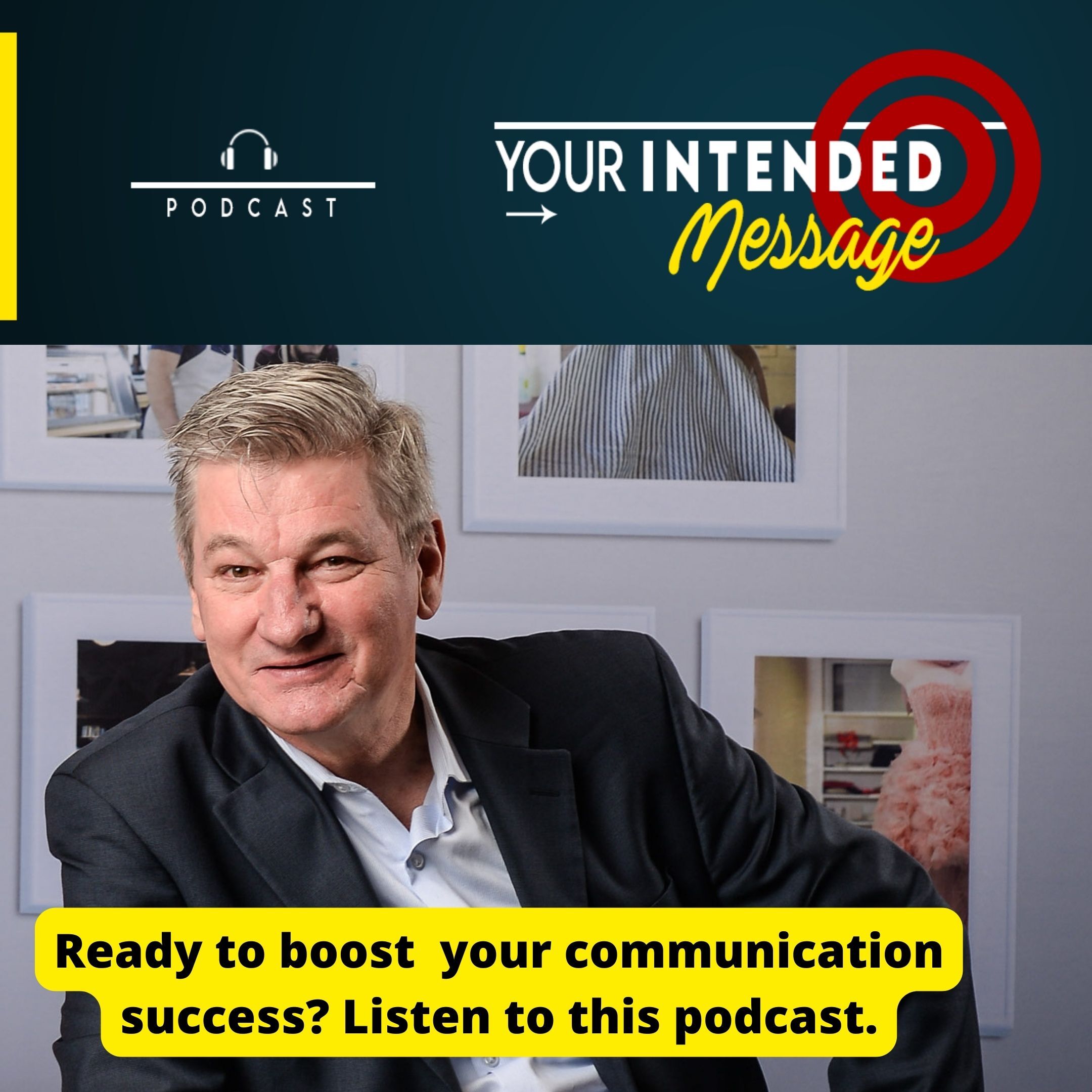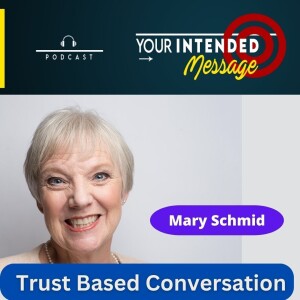
15.2K
Downloads
263
Episodes
Better communication skills will advance your career and business. Are you ready to enhance your understanding and results from better communication? Listen to learn how to deliver Your Intended Message. Are you willing to cross-examine communication from various perspectives? Would you like to deliver your intended message more effectively? Listen to Your Intended Message to gain a powerful advantage in your ability to convey your message to your audience, team, clients or marketplace. Learn from the mistakes and success of communication experts from around the world from different scenarios. Imagine what that means to you when you improve the success of your next conversation, presentation or message.
Episodes

Thursday May 16, 2024
Build the Conversation on Trust: Mary Schmid
Thursday May 16, 2024
Thursday May 16, 2024
Everything begins with a conversation
A solid conversation starts with trust
Episode 207 ( Mary is based in Minnesota)
In this conversation with Mary Schmid we explore:
- Why do 9 out of 10 conversations fail?
- How are the chemical releases in the brain shaping your feelings?
- Why we don't trust when we are stressed or threatened
- Why we don't make pure logical decisions
- The three levels of conversation
- How to move conversation to cooperation
- How to lead with trust
About our guest, Mary Schmid:
Mary Schmid, MBA, has expertise in trust-based conversations. As the author of “Make or Break Conversations,” she offers valuable insights rooted in neuroscience.
With her deep understanding of evidence-based neuroscience, Mary delivers transformative programs that elevate good conversation to trust building interactions.
Mary’s unique ability lies in translating scientific knowledge into practical, actionable steps that you can apply in your next conversation, ensuring others feel heard, seen, and valued.
-----
Connect with Mary on Linkedin
https://www.linkedin.com/in/maryschmid/
Learn more about her services at the website
-----
Highlights from this conversation with Mary Schmid:
Practice active listening skills like paraphrasing, asking open questions, and summarizing to build understanding.
Slow down conversations and take time to discover other perspectives before deciding on solutions.
Prepare for difficult conversations by getting clarity on the purpose and considering different perspectives.
Use plain language instead of jargon to be understood and build connection.
Get to know team members personally before instituting changes as a new leader.
-----
Exactly. And what really happened in the brain before those good feelings, feeling in sync is that something happened in that conversation, who knows what it is, it's verbal, it's nonverbal is a feeling or a memory that you've had talking to a person perhaps like this person that was good, it just felt good.
What really happened is your brain sensed respect, safety. And all of a sudden, it opened up. So what happened is when your brain senses this respect, and safety and going back and forth, talking with each other, there's a chemical release called oxytocin.
And oxytocin opens up the prefrontal cortex, the smart part of our brain, the executive part of our brain that's responsible for innovation, problem solving, connection, cost, and it feels like a good conversation.
But what happens preceding that feeling like it was a good conversation was this invisible chemical reaction that happens in your brain, and my brain and the brain of all humans.
-----
There's three levels of conversation, and one is not better than the other. That's what people immediately think like, Oh, my God, I know that we need to understand the three levels, and how we can use them and how they impact the people so that our intended message reaches the people rather than go astray.
So the first level of conversation is what I call an informational conversation. We use it all day long. In our life, you ask a question, I give an answer. Here's, where's the meeting? What time is this? What's where do we go for that? Question? Answer? That's fine. Sometimes that's all we need is to get the question answered, and get the information.
However, when we're in conversations, when we're in meetings with other people, I think we need we may need more than just a question and answer to build trust. Because data, information, logic does not build trust. So we're in a meeting, perhaps, and we ask a few questions, you know, we're not totally blind to other people.
So we ask a few questions. And what our brain does is it automatically says, Oh, I know the answer. I'm going to tell them. So with a few pieces of information, a little bit of data, lickety split, away we go, we talk to people and tell people what to do based on a limited amount of information.
And we think that's going to do the trick. We're thinking that we're being helpful, but we're really not we're shutting them down. And so we not only tell them what to do, we are really helpful, George, and we're going to tell them how they need to do it.
------
Your Intended Message is the podcast about how you can boost your career and business success by honing your communication skills. We’ll examine the aspects of how we communicate one-to-one, one to few and one to many – plus that important conversation, one to self.
In these interviews we will explore presentation skills, public speaking, conversation, persuasion, negotiation, sales conversations, marketing, team meetings, social media, branding, self talk and more.
Your host is George Torok
George is a specialist in communication skills. Especially presentation. He’s fascinated by the links between communication and influencing behaviors. He delivers training and coaching programs to help leaders and promising professionals deliver the intended message for greater success.
Connect with George
www.SpeechCoachforExecutives.com
https://www.linkedin.com/in/georgetorokpresentations/
https://www.youtube.com/user/presentationskills
https://www.instagram.com/georgetorok/

No comments yet. Be the first to say something!